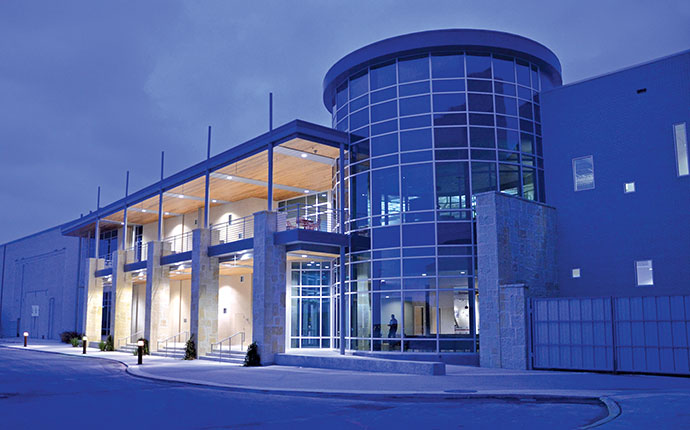If news in 2013 that the NSA monitors millions of emails and phone calls didn’t illustrate cyber vulnerability on a national scale, perhaps the high-profile data breaches at retailers Target and Neiman Marcus did. Add hacks of computer systems across the nation, and it’s no wonder the cybersecurity industry is booming.
Over 209,000 cybersecurity jobs were posted nationally in 2013, according to a March 2014 report by Burning Glass Technologies. Cybersecurity jobs accounted for 10 percent of all IT jobs, and from 2007 through 2013 cybersecurity jobs have grown 74 percent — twice as fast as all IT jobs. More than ever, states and communities are looking for creative ways to differentiate themselves as locations for investment in this red-hot sector.
Maryland, already one of the top US states for cybersecurity jobs, put a unique, first-of-its-kind tax incentive package in place in 2013 aimed specifically at cybersecurity companies. “This type of tax credit is completely new, both to our state and from what I’ve seen elsewhere,” says Jeffrey Wells, executive director of Cyber Development for the Maryland Department of Business and Economic Development (DBED). “Most tax credits for investment go back to the investor. In this case the credit goes back to the company, providing additional capital for growth and building a stronger company, ultimately benefiting the investor.”
The state offers $3 million in tax breaks for cybersecurity startups or companies planning to relocate. Among other criteria, the company must be five years or younger to qualify. The program began in January 2014 and was well-received. More than a dozen investors, representing several companies have qualified for the credit. Wells says the state has about $900,000 left in the kitty.

“We want to continue to provide support and nurture the ecosystem that’s going to drive new business and fuel economic impact.“
Holly Smithson, President & CEO, Cyber Center of Excellence, San Diego, California
“In the past, our strength in cybersecurity was the result of services to the US government,” says Wells. “As we saw the landscape evolve and include commercial security, we realized we needed to address the product development side. We had a lot of small companies forming to create products to address that, and we wanted to provide some seed opportunities for that community to grow and ultimately thrive here in our state. It’s not just about relocations, but fostering entrepreneurship and innovation.”
One Maryland county followed suit with its own cyber tax incentive. Montgomery County, home to a sizable cluster of cybersecurity companies such as Lockheed Martin-Information Systems and Global Services, introduced the Cybersecurity Incentive Tax Credit supplement program to support the county’s growing cybersecurity ecosystem.
“I think everyone is looking at the natural DNA and what is best for their county,” says Wells. “We have had some companies from Montgomery County that chose to apply for the state tax incentive credit because the county added that additional kicker. In some cases, it has helped position the Montgomery County choice of where that company decided to locate their business.”
Harford County, Md., is home to Aberdeen Proving Ground (APG) and civilian cyber companies such as SafeNet and Convergence Technology Consulting, a company which recently relocated to the county. In 2013, Harford County’s Office of Economic Development/Tourism established The GroundFloor, a cyber-technology/co-working space, in response to the upswing in cyber and digital communications entrepreneurship in their community.
“We know we have people working at APG and other defense contractors,” says Jim Richardson, director of the Harford County Office of Economic Development. “We wanted to give people who found a better mousetrap the opportunity and a place to go where they could develop it.”
The county funds the facility, which currently has about 12 entrepreneurs-in-residence. Most are in the defense contracting community, Richardson says.
Cyber Excellence in California
In late 2013, private- and public-sector cybersecurity employers, political and higher education leaders came together with economic development professionals in San Diego to assess regional readiness for establishing a Cyber Center of Excellence (CCOE). The results were published in a March 2014 report stating the cyber industry in San Diego has a total economic impact of $1.5 billion. The report identified 100 cybersecurity firms in the region, creating over 8,000 jobs.
“Those numbers justified and warranted pulling all these different assets together with the goal that we would try to accelerate and build on those numbers,” says Holly Smithson, president and CEO of the CCOE.
Much of the focus for year one of the CCOE will be on getting the word out to small and mid-sized companies about cybersecurity standards and practices. The second item is to focus on an economic growth strategy. “Part of what we want to do is stimulate market demand for solutions from companies that provide them,” Smithson says. “That’s our goal, but it’s also our value proposition — to accelerate the market demand for all these products and optimize the market visibility.”
The CCOE also plans to encourage and stimulate innovation. “As we educate and try to accelerate market demand for these products, we want to grow our cluster,” Smithson says. “We want to continue to provide support and nurture the ecosystem that’s going to drive new business and fuel economic impact.
A Legacy Sector Looks to the Future
San Antonio has been a military cybersecurity hub for years.
“Military information security [IS] was born here,” says Mario Hernandez, president of the San Antonio Economic Development Foundation. “That gave us a leg up in the industry. There have been a number of spin offs from ‘Security Hill,’ as we referred to Lackland Air Force Base. They started different companies in the IS sector, and now we have about 80 companies in that business.”
The city has a history of drilling down to nurture cyber talent. The Center for Infrastructure Assurance and Security at the University of Texas San Antonio hosted the Raytheon National Collegiate Cyber Defense Competition (NCCDC) for the past nine years. Considered the “big dance” of cyber competition, the contest features the top 10 teams from universities across the US defending against simulated commercial cyber-attacks.
Rackspace, a global leader in cloud computing that serves hundreds of thousands of customers, was founded in 1998 and organically grown by three students from Trinity University in San Antonio. The company was highly recruited by other Texas communities, California and North Carolina when they outgrew their first headquarters. Instead of moving, company leaders chose to renovate an abandoned mall in a declining part of the city where it could be a difference-maker. Rackspace has built out over half of the space, 1.2 million sq. ft. (111,480 sq. m.).
The company is an innovator in addressing talent development. Having launched the largest commercially operated open cloud platform based on Open Stack in 2012, Rackspace opened the Open Cloud Academy, described by company officials as “an educational program designed to provide students with affordable IT certifications, specifically around open cloud technologies.”
Hitting Its Stride
Since 2008, Louisiana has focused on software development as an industry sector that includes the cybersecurity industry. The state offers one of the nation’s most advantageous software-development tax credits, initially put in place for the video-game industry, and expanded to include cybersecurity. The incentive offers a 35-percent benefit that offsets about a third of the cost of software development talent for eligible projects. The program doesn’t have a cap and doesn’t phase out; it’s a permanent part of the tax code.
Louisiana’s Department of Economic Development recently announced a joint venture between Computer Science Corp. and Louisiana Tech University that will train next generation workers for jobs in cloud computing and cybersecurity in a new facility at the National Cyber Research Park in Bossier City. The company will hire 800 people at the new 116,000-sq.-ft. (10,780-sq.-m.) facility, which will become an anchor tenant of the 3,000-acre (1,215-hectare) research park being developed by the Cyber Innovation Center. The state will contribute $1.4 million to the venture. IBM announced an 800-job technology center in Baton Rouge, one of Site Selection’s Top Deals of 2013.
“It’s really snowballing right now,” says Louisiana Economic Development Secretary Stephen Moret. “The toughest thing was getting the first one or two companies. They didn’t think of Louisiana as a place for this kind of work. We worked on IBM for two years, and since then we’ve announced three more big ones and have five more we’re competing for. Those big moves validate the state.”
